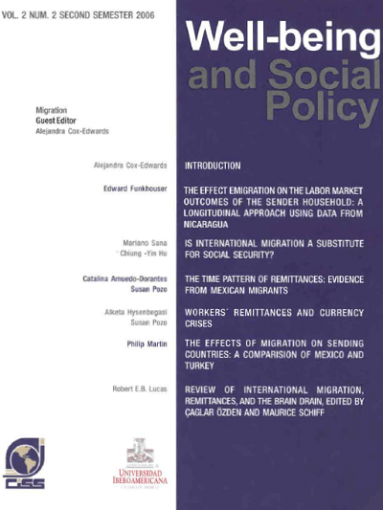
International migrants are persons who cross national borders and remain outside their countries of birth or citizenship for 12 months or more, regardless of the reason for being abroad or legal status while abroad. According to UN estimates, the number of international migrants was 191 million in 2005, and half were in the labor force of the destination country. International labor migration affects both receiving and sending countries, and most of the impacts of emigration on sending countries are captured in the so-called 3-R channels, viz, recruitment, remittances, and returns.
Recruitment in Mexico and Turkey began with US and German government approval of the movement of unskilled workers, In both countries, labor flows got larger and lasted longer than anticipated because of distortion and dependence: some employers made investment decisions that assumed migrants would continue to be available and some migrants and regions became dependent on foreign jobs and remittances. There was a decade pause in Mexico-US migration between the mid-1960s and mid-1970s, while there was a shift from labor migration in the early 1970s to family unification in the late 1970s in the case of Turkey-Germany migration.
The governments of both Mexico and Turkey see emigration as a short-term safety valve, but the two countries have different policies toward current and future migrants. The Mexican government, which often says that it represents 105 million Mexicans in Mexico and another 25 million abroad (half children born to Mexicans abroad), anticipates continued emigration and rising remittances, and has made policies to improve conditions for Mexicans abroad a top priority. The Turkish government, on the other hand, downplays potential emigration as it seeks entry into the European Union (EU), emphasizing that few Turks are leaving for foreign jobs and that the infusion of foreign and local investment with EU entry will speed up economic and job growth and encourage most Turks to stay home when they have the freedom to seek jobs elsewhere in the EU.
